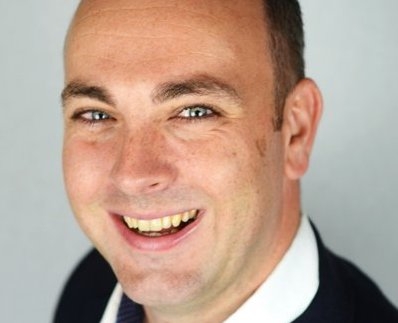I love this time of year. It’s a time for reflection and opportunity. It’s a time for resolutions and goal setting, with January viewed by many as a clean slate.
While making market forecasts is frowned upon within Financial Planning circles, for obvious reasons, there’s no harm in thinking about how the next decade might look for our profession. More importantly, thinking about how the role of the Financial Planner is likely to change.
One of the biggest influences on our role in the next decade is likely to be a 16-year-old Swedish environmental activist. Greta Thunberg quickly rose to international recognition with her impassioned speeches about the climate crisis.
She’s not alone in tackling this most critical issue of our time. The work of Extinction Rebellion grabbed headlines throughout 2019, waking us up to the reality of the threat of unprecedented global emergency.
What does the climate crisis mean for the role of the Financial Planner in 2020 and beyond?
I believe we will experience a significant shift towards more local ways of doing business. There’s little justification for spending hours driving around the country to see clients or the long-haul flight which generates more carbon emissions that the average person in dozens of countries around the world produces in an entire year.
Instead, the 2020 Financial Planner will focus on doing business locally, within their community.
Where client relationships are maintained at a distance, the environmental impact of these interactions can be minimised with video call technology. A standard part of every Financial Planner office in 2020 needs to be an HD video camera and microphone for these calls.
I can also see a growing number of Financial Planners exploring becoming a Certified B Corporation route in 2020. For the uninitiated, Certified B Corps are a new kind of business that balance purpose and profit. They are legally required to consider the impact of their decisions on their workers, customers, suppliers, community, and the environment.
There’s a growing number of businesses worldwide who are shifting their ambitions to purpose, not just profit. If we look at how employee expectations are changing, thanks in large part to the millennial generation, then flexible working practices and remote working are likely to become the norm during the next decade.
We’ve already seen a seismic shift from advice to planning, prompting a change from industry to the profession. Not all will make this transition, and that’s fine, but for those who have already evolved their role, the next evolution will be along soon.
The development of artificial intelligence and machine learning will, sooner than you might think, make many of the tasks undertaken by Financial Planners and their support staff entirely redundant. I don’t say this to upset or offend anyone, but to explain the reality of technological development in the 2020s.
You can repeat the actions of militant English textile workers in the 19th century, and destroy this emerging technology as a form of protest, or you can embrace it wholeheartedly and look for opportunities to improve your efficiency.
Instead of carrying out mundane and simple tasks each day, you could instead spend your time on the highest value activities. This is likely to mean acquiring new skills; skills which cannot be replicated easily by machines. If you’re not already upskilling in the areas of coaching and behavioural finance, now is the time.
Another theme I see developing through 2020 is the FIRE (Financial Independence, Retire Early) movement becoming mainstream in the UK. It’s already gained a massive following in the US and presents both a threat and opportunity to the Financial Planning profession here.
For those unfamiliar with FIRE, its proponents believe in an extreme form of frugality designed to accumulate sufficient savings and investments to replace employed income rapidly. FIRE practitioners are, by their very nature, more likely to be DIY investors. But this doesn’t preclude the need for the right Financial Planning assistance at the correct times.
As the wave of wealthy retiring baby boomers fades out during the next decade, Financial Planners will need to develop propositions explicitly designed for future generations.
One final prediction I would like to make for the Financial Planner role in 2020 is a movement away from one to one advice, with Planners instead creating and leading tribes. This approach, best explained by Kevin Kelly in his 1,000 True Fans essay, will allow the delivery of planning and coaching at scale; something previously hard to achieve within our profession.
It’s the genuine solution to the advice gap, going where so-called robo advisers have always failed and building tribes of ‘fans’ who follow your work and access your expertise in far more efficient ways than the traditional Financial Planner and client relationship allows.
Whatever happens in 2020 and beyond, I hope this offers some food for thought. Happy New Year!
Martin Bamford FPFS is a Chartered Financial Planner at Informed Choice and CEO of Bamford Media.
www.bamfordmedia.co.uk |
www.icfp.co.uk |

